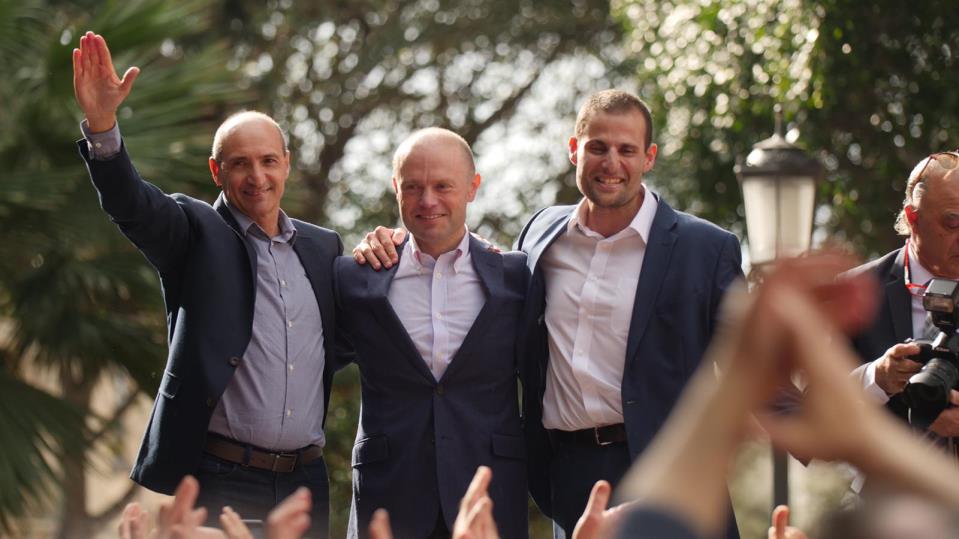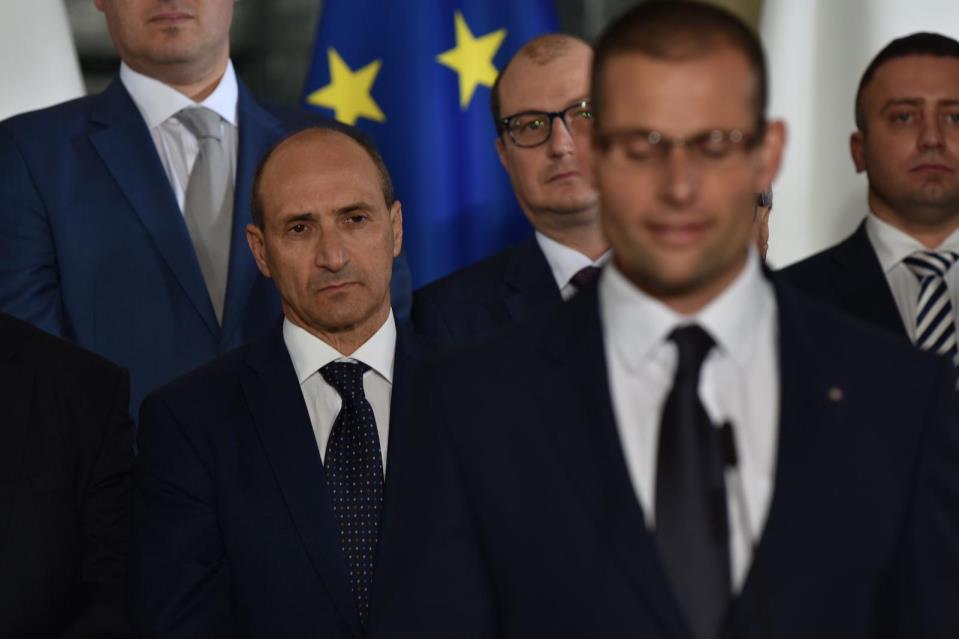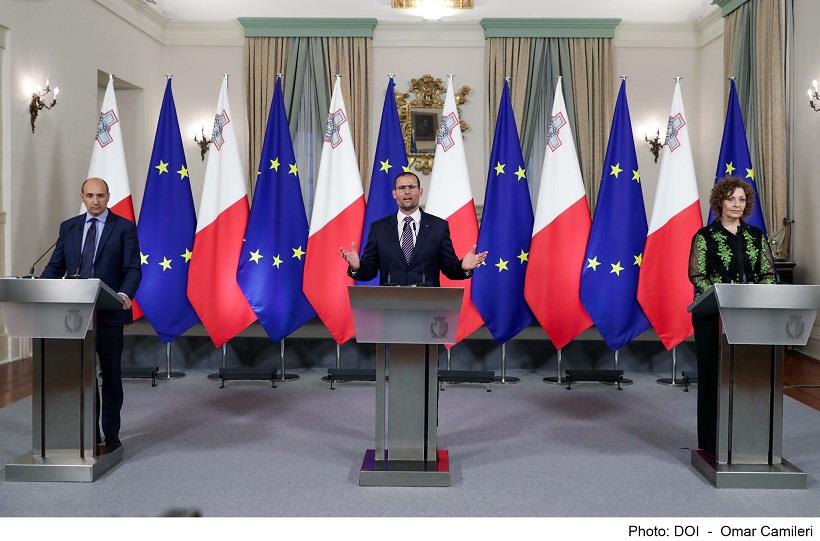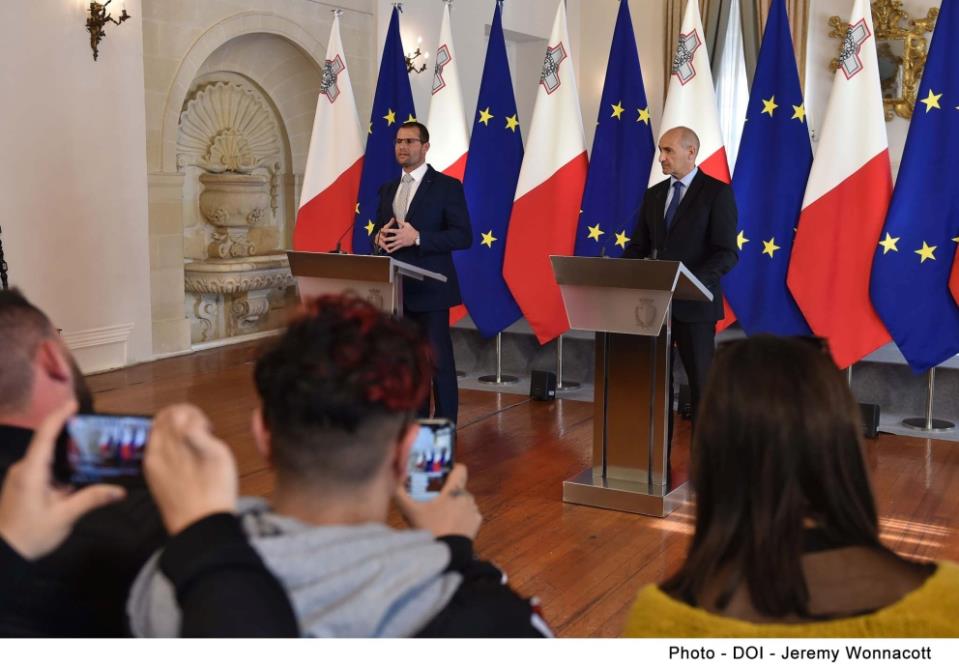We’ve been told several times that the government is moving as one on the way the pandemic should be tackled.
We’ve been told many times that Prime Minister Robert Abela and his deputy, Health Minister Chris Fearne, are on the same page on how Covid-19 should be addressed.
They both want us to believe that they share common ideas on the matter, and that all decisions that are announced and implemented have the backing of both, and that of the Cabinet of Ministers in what is known as shared responsibility. They say that all decisions are based on the advice of the health authorities.
But this is what they would like us to think – because the facts as they happened since the first case was registered last March show us otherwise. And the more time passes, the more the differences between the top two government figures emerge.

PL leadership
That the two happen to be the ones who contested the election for the Labour Party leadership and the post of head of government just before the pandemic broke did not help in their relationship, even because the wounds were still too fresh for them to be considered healed.
Fearne, let us remember, was the first to put his name forward as a replacement to Muscat when the latter announced his resignation in December 2019, and he appeared to be the ideal candidate. Many Nationalists considered him as a step in the right direction after Muscat, at least until he passed insensitive comments about their party. “When I die, they can write on my tombstone that the PN were never elected. Instead of RIP, they can write RIPN,” he had told a crowd of supporters during his campaign for the leadership.
It is probable that he wanted to endear himself with the Labour diehards, those who were ultimately going to vote in the leadership election. Maybe he was realising that he was moving from being the favourite to win the contest to being second choice, given that Robert Abela had thrown in his hat and was being tacitly supported by the party machine, then still led by Muscat.
Abela had come out of nowhere, first by launching a scathing attack on what he described as a “devilish” pact which he thought was being put in place to have Fearne take over from Muscat, and then submitting his nomination for the election, which he eventually won.
There was no love lost between the two, as Fearne saw Abela as the one who knocked down his ambition to become head of government, and Abela had to remain on the alert as his strongest rival was the second in command. Fearne first thought he would be uncontested, then thought he was going to win, but the Labour delegates chose Abela.
Fearne did not attend the rally the Labour Party organised for Abela to deliver his first address as leader. Then he needed some persuasion to retain his position as Health Minister, the one he had occupied under Muscat and which he thought put him on a launching pad to Castille. There were moments in which Fearne seemed to be considering his political future, before he finally agreed to stay on.
Perhaps Fearne stayed on reluctantly. We’ll never know and he will never admit it. But the relationship with his boss who, it must be remembered, had been elected for the first time in the last election and had never held a ministerial job, was not idyllic and did not improve after the leadership contest.

Health vs economy
The disagreements started to emerge as soon as the Coronavirus hit our shores in March, starting a long battle with a stubborn disease that has caused havoc, not only in Malta.
That Abela is a lawyer and Fearne is a doctor is already a strong indication of differences in character and approach. By tradition, lawyers tend to be cold, calculating and detached, whereas doctors are more homely, empathetic and amiable. This is perhaps why, in our political history, we’ve had many more lawyers who made it to the top than doctors. Because lawyers know their way around more than doctors do.
In this case, it was clear right from the start that Abela and Fearne wanted to deal with the pandemic in different ways. Abela was more inclined to see the economic consequences of the crisis; maybe it’s because, as prime minister, he was seeing the overall picture and he carries more responsibility than just health. On the other hand, Fearne tended to focus more on the complicated medical circumstances brought about by the virus.
And so the battle between health and economy began.
Fearne, backed by the health authorities and their advice, wanted to give priority to the medical aspect of the pandemic, knowing and understanding that the effects on people’s health were devastating, in particular the more vulnerable members of our society.
Conversely, Abela wanted to limit the effects of the pandemic on the economy. He was initially against the closing down of the airport, retail outlets and restaurants but he later had to succumb to the idea. Still, as soon as the numbers of the first wave began to decline, he immediately pushed for a reopening which turned out to be too early and one which led to a second, bigger wave.
In July, we were close to having zero active cases. But Abela moved too quickly, and the easing of the restrictions – and the irresponsible behaviour of some – opened the floodgates, with the number of new and active cases multiplying in days and the list of victims growing by the day.

Mixed messages
In all of this, people were getting mixed messages. Abela was pulling one way, and Fearne was pulling the other.
Abela was telling people to enjoy summer, that waves are only in the sea and that this is not the plague, clearly encouraging the people to live normally when these are not normal times.
Fearne, for his part, was being more cautious in his words, urging the people to make sacrifices because, at the end of the day, they were for their own good.
Then Abela came up with the famous “all is under control” quote, which he kept repeating even when more and more people were dying.
To appear to be doing something to limit the spread of the virus in the latter part of last year, when the second wave was in full swing, Abela chose to single out bars and clubs in fresh restrictions issued by the government, closing them down indefinitely and making them the sacrificial lamb of the situation. This was the only sector that suffered total closure in the past weeks and it is not known when they will reopen.
When Christmas was approaching, there were warnings that social and family gatherings would have possibly led to another surge of the virus. But these calls went unheeded by Abela who, unlike other European leaders who were busy ordering lockdowns and stricter restrictions, chose to leave things as they were.
Now we are facing the consequences of that decision, as the number of active cases reached record levels over the past week. What experts were predicting, and what Abela chose to ignore, has come true. Fearne reacted to this by saying that, if the numbers continue to grow, then there would be no other option than to issue more measures. Abela did not say a word about this, but since the numbers did continue to grow and no new restrictions have been put into place, then it is clear that, for now, the PM has had the last say on the matter.

The coming months
No one knows when this pandemic will be over. No-one, it seems, except Robert Abela. The Prime Minister has said that he wants the economy to start recovering by March and that it will be business as usual by May. Is he being bold and arrogant? Is he being optimistic and forward-looking?
Some would say yes, if they are blinded by political passion. But it is sheer presumptuousness on Abela’s part to say that all will be over by May. He’s raising expectations when he knows that the situation is too volatile to predict. And his obsession that he wants Malta to be the first to recover from the pandemic will possibly lead to hasty decisions that he will regret.
Elsewhere, leaders are reaching decisions on a day-by-day basis, but Abela thinks he knows more.
In another instant that speaks volumes on the discord that exists, Fearne is not following Abela on this one either. He is saying that one will know more when the vaccination campaign goes through and, even here, the timeline is uncertain. It is said that the frontliners and vulnerable people will all be vaccinated by May, but given that the rate of inoculation is slower than anticipated, this will probably take longer.
Fearne is saying that the vaccination campaign will be over by the end of summer but, again, this is too early to forecast.
Dates and more dates – what is sure is that Abela and Fearne have different views on what’s to come, and when it will come.